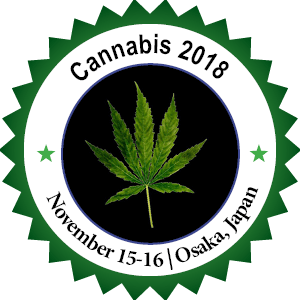
Lauren de Freitas
Cannabidiol, seizures, Cannabinoids, cannabis, Chemotherapy, drugs, Marijuana, medical marijuana, nausea, pain, cannabis, Dravet syndrome, Epilepsy, marijuana, Medical marijuana, Seizures
Title: CBD’s Efficacy in Mitigating THC-Induced Adverse Cognitive and Psychological Outcomes: A Systematic Review and Meta-Analysis
Biography
Biography: Lauren de Freitas
Abstract
Cannabis is the most widely used substance in the world with Canadian youth aged 15-24 using this substance at a rate three times higher to that of the adult population (24.4% vs. 8.0%). This is especially important when considering the recent growing attention around enacting policy and legislation for the use of cannabis for medicinal and recreational purposes especially in North America. There have been conflicting findings in the literature regarding CBD’s efficacy in attenuating delta-9-tetrahydrocannabinol (THC)-induced adverse effects such as anxiety, paranoia and deficits in cognition as well as cannabidiol (CBD)’s effects on THC’s rewarding properties. Much of the data examining these interactive effects comes from preclinical models. It is imperative to examine CBD’s capability in reducing harms incurred, particularly from vulnerable populations, from THC while still providing the benefits that users seek from cannabis. A systematic review and meta-analysis of the literature is being conducted to analyze randomized controlled trials that include healthy volunteers and medical populations. Studies that were included compare strains with CBD and THC together to THC-only or high-THC and low-CBD strains (in 2:1 ratio of THC:CBD or lower). Outcome measures being analyzed. Specifically, can CBD attenuate THC-induced adverse effects, including: (1) Subjective effects (wanting and craving of the drug, frequency of use); (2) Physiological effects (heart rate and blood pressure); (3) Cognitive effects (memory, psychomotor and cognitive performance); (4) Psychological effects (positive psychotic symptoms, paranoia, and anxiety). This emerging area of research will inform clinical and policy decisions on the effects ofcannabis for recreational and medicinal purposes

